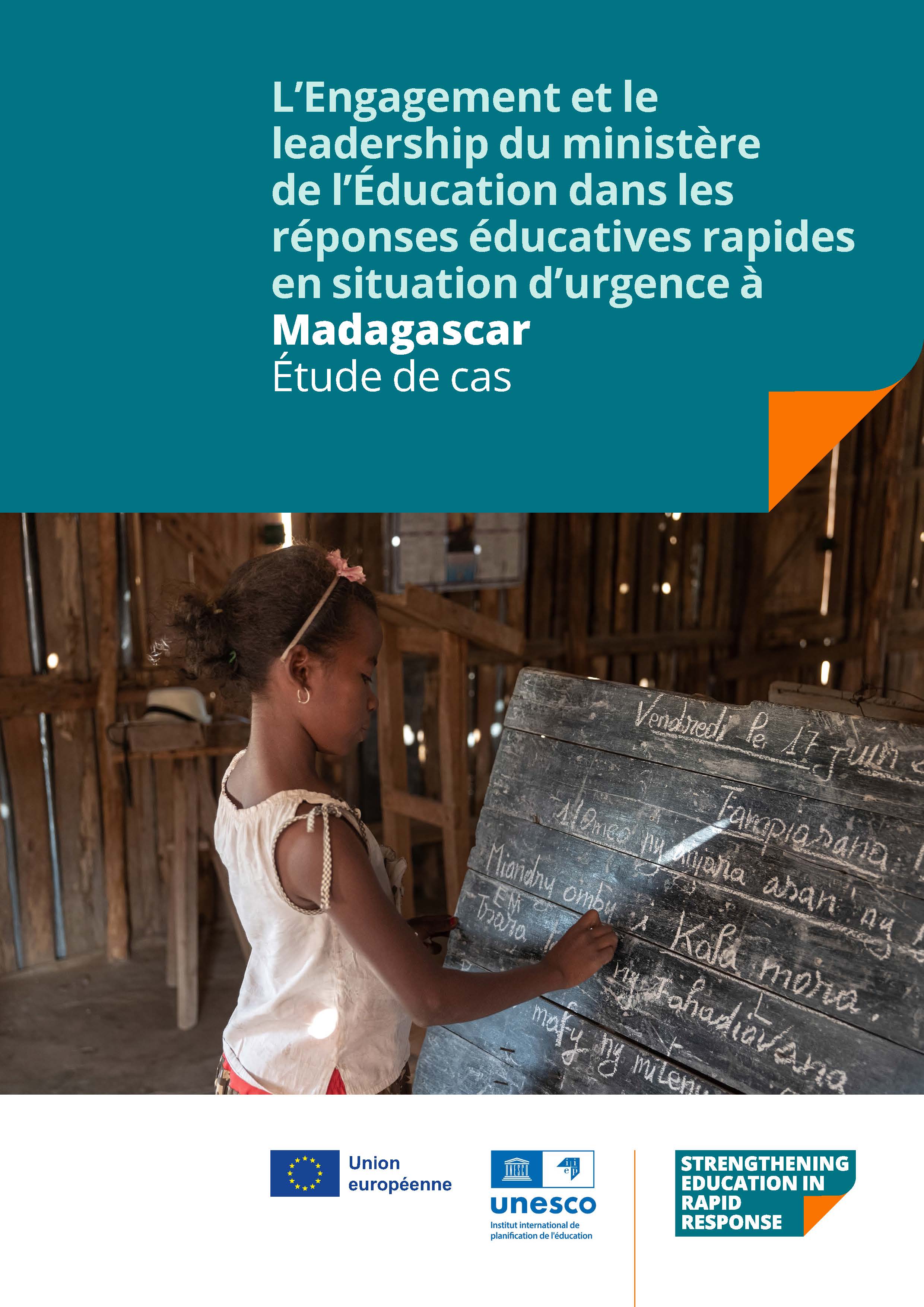un0443353.jpg

A child’s right to education does not cease at the onset of a humanitarian emergency. Rather, education becomes an important life-saving and life-sustaining tool. Despite this, education is often not prioritized or included in initial rapid responses, which promote quick humanitarian assistance at the onset of a new emergency or the escalation of an existing humanitarian crisis. This is a critical gap jeopardizing children and young people’s education and well-being.
To address this gap the European Commission’s Directorate General for Civil Protection and Humanitarian Aid Operations (DG ECHO) partnered with the Global Education Cluster, UNICEF, REACH, IIEP-UNESCO, Save the Children, Translators without Borders and NORCAP to gather evidence, develop tools, and reinforce capacities to promote and strengthen the systemic inclusion of lifesaving and life-sustaining education in rapid response.
Discover the strengthening rapid education response toolkit
As part of this partnership, IIEP explored the role of ministries of education in rapid education response, providing new recommendations on how to strengthen their leadership and engagement. This is especially important as many crises today can last many years, putting learners’ entire basic education cycle at risk.
A new policy brief is now available to help ministries of education strengthen rapid education responses and build resilience, while considering the immediate needs of affected populations.
For ministries of education to play a more effective role in the planning and implementation of rapid education responses, it is critical that education authorities at all levels be better prepared to respond to emergencies that affect the education sector.
Drawing on research case studies, workshops, and practical guidance that were developed with humanitarian and development education actors in South Sudan and Madagascar, the synthesis policy brief includes practical recommendations to enhance ministry engagement and leadership during crises at national, subnational, and local levels. It includes suggestions to:
- enhance preparedness efforts between ministries of education and humanitarian partners,
- strengthen the role of ministries of education during rapid education responses,
- and foster an enabling environment for effective engagement and leadership in preventing or mitigating, preparing for, and responding to sudden-onset emergencies.
Supporting ministries to play a leadership role to protect education and the future of today’s youth is crucial as global humanitarian need has now reached levels not seen since World War II. In 2022, over 300 million people needed humanitarian assistance, stemming from conflict, climate change, natural hazards, and other emergencies.
“The Ministry can … help to define the roles and responsibilities of partners, harmonize emergency response, apply a well-coordinated monitoring and evaluation approach, minimize and avoid duplication of efforts, and envision a recovery strategy.”
-Donor respondent in South Sudan
To support ministries in driving rapid education responses, the policy brief highlights the importance of adopting a crisis-sensitive approach to planning. Not only can it strengthen preparedness measures, crisis-sensitive planning reduces vulnerability to hazards, mitigates the impacts of crises, and improves recovery efforts by putting in place strategies to address the risks with which education systems are confronted.
To facilitate this, ministries are encouraged to analyze the diverse risks and threats facing their education systems, collect and use relevant and reliable data, and establish dedicated budget lines for rapid education responses.
Across levels and sectors, it is also recommended to facilitate strong communication and coordination and to empower education officials working not only at the national level, but sub-nationally, to protect education and learning on the frontline.










